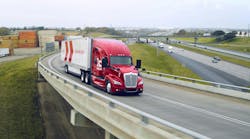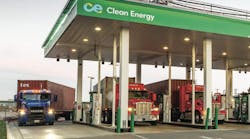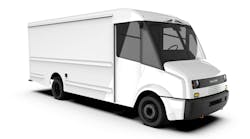So how can companies meet the needs of their customers, while producing environmentally friendly products that the EPA endorses? It is a complex task—one balancing fuel economy, potential power loss, uptime and cost while maintaining the intended function of the truck. But ArvinMeritor has the solution.
With a long reputation as a leader in emissions control devices, our company is ready to transfer its expertise in emissions to the heavy-duty diesel engine market. Whether it’s particulate matter abatement, NOx control or oxidation of unburned hydrocarbons, our company has several solutions that can be tailored to meet its customers’ needs.
In the 1970s when catalytic converters were added to automobiles, engine performance was adversely affected by high-backpressure, reduced compression levels and even clogging of the catalytic converter. Our product development capabilities and total exhaust system solutions offer top performance and ensure that the problems of the 1970s won’t be repeated by providing heavy-duty diesel exhaust systems that will minimize impact on fuel economy and power loss.
Our company’s knowledge of materials and stress/ failure modes will ensure that converters and mufflers are built to last. This maximizes vehicle uptime and enables truck operators to get the most out of their equipment. In fact, one of our company’s goals is to extend the life of commercial vehicle exhaust systems to 750,000 miles.
Each product we create is designed with both the customer and the environment in mind. The company’s Diesel Particulate Trap with Intelligent Regeneration Technology (I.R. Tech™) is a self-regenerating soot filter system consisting of a diesel burner, electronic controls and a high-durability particulate filter. All components are specified to the highest level of durability for years of carefree operation.
The burner system is microprocessor-controlled and enables automatic on-demand filter regeneration during vehicle operation. There is no need to treat the filter with catalytic materials or use fuel additives to assist with the regeneration process, which eliminates sulfur contamination concerns.
Since the burner operates for a short duration and is idle for long intervals, the burner-related fuel consumption due to regeneration is very low, producing a fuel-efficiency loss of less than 1%. That’s actually a fairly insignificant price to pay to comply with the upcoming regulations.
Many suppliers can meet current emissions standards, but finding the optimal solution that balances fuel economy, power and uptime takes an established expert in emissions. Other suppliers can meet sound requirements, but at the expense of increased backpressure.
At a time when market forces are demanding new levels of commercial vehicle emissions management, our company and its team of industry-leading engineers comprehend the optimum methodology to meet durability and weight objectives, while maintaining peak performance and cost-effectiveness.
As the leader in heavy-duty drivetrain technology, we can and will keep you “green” with regard to the environment and your operation’s bottom line.


